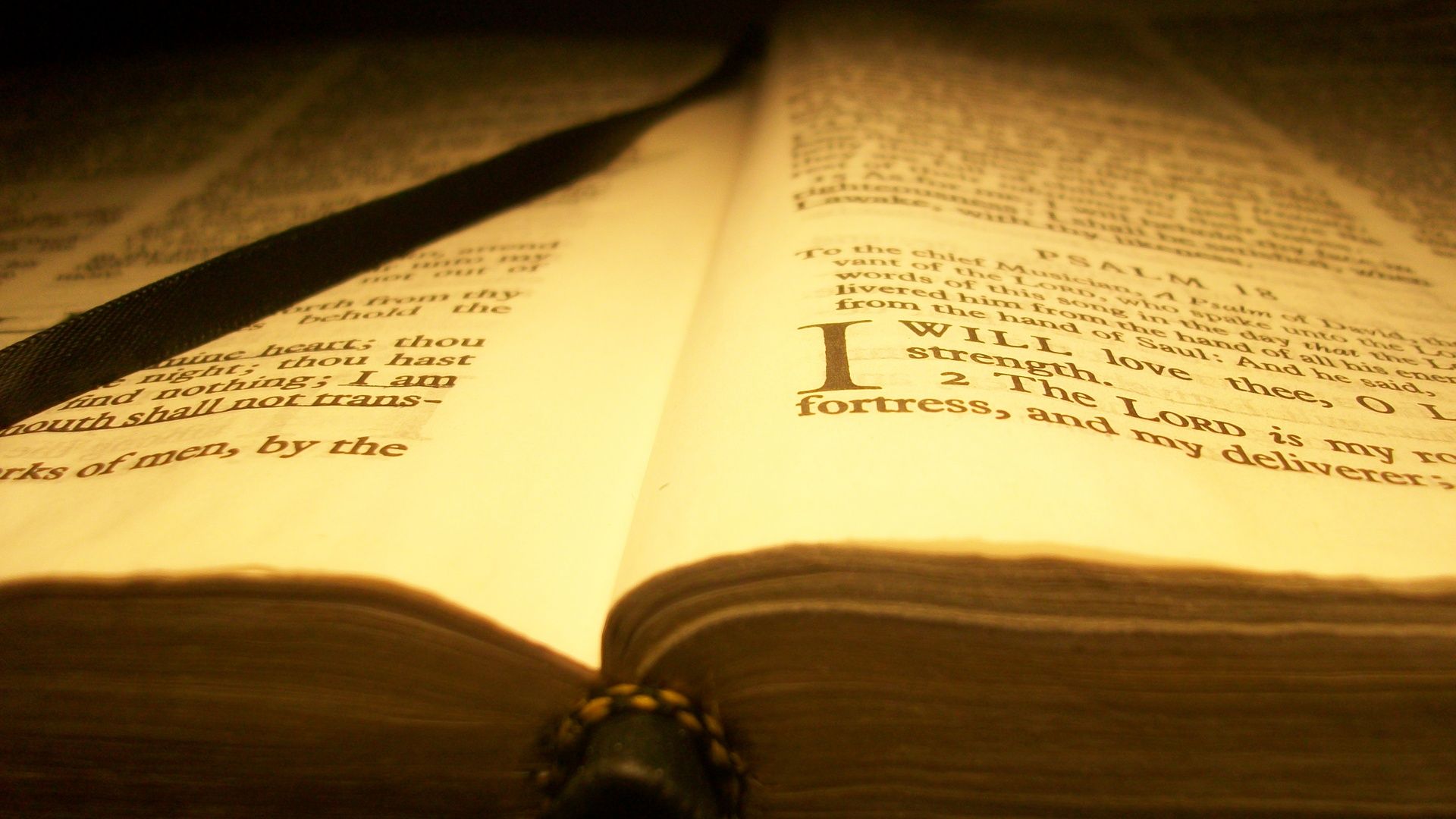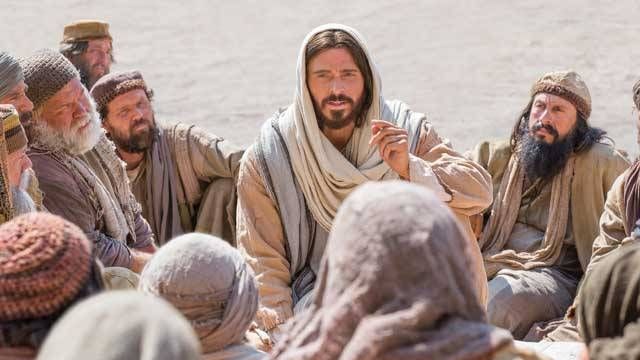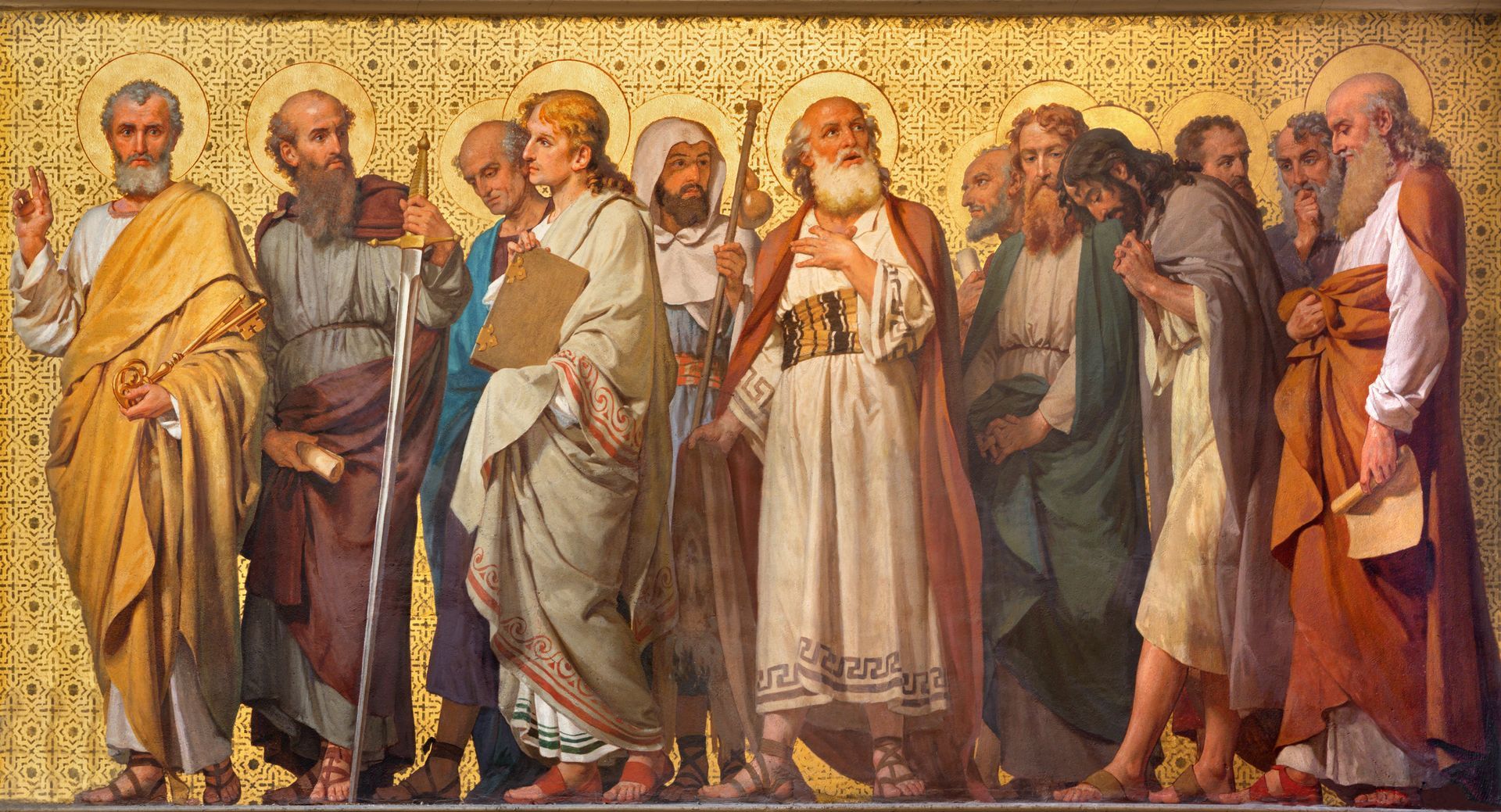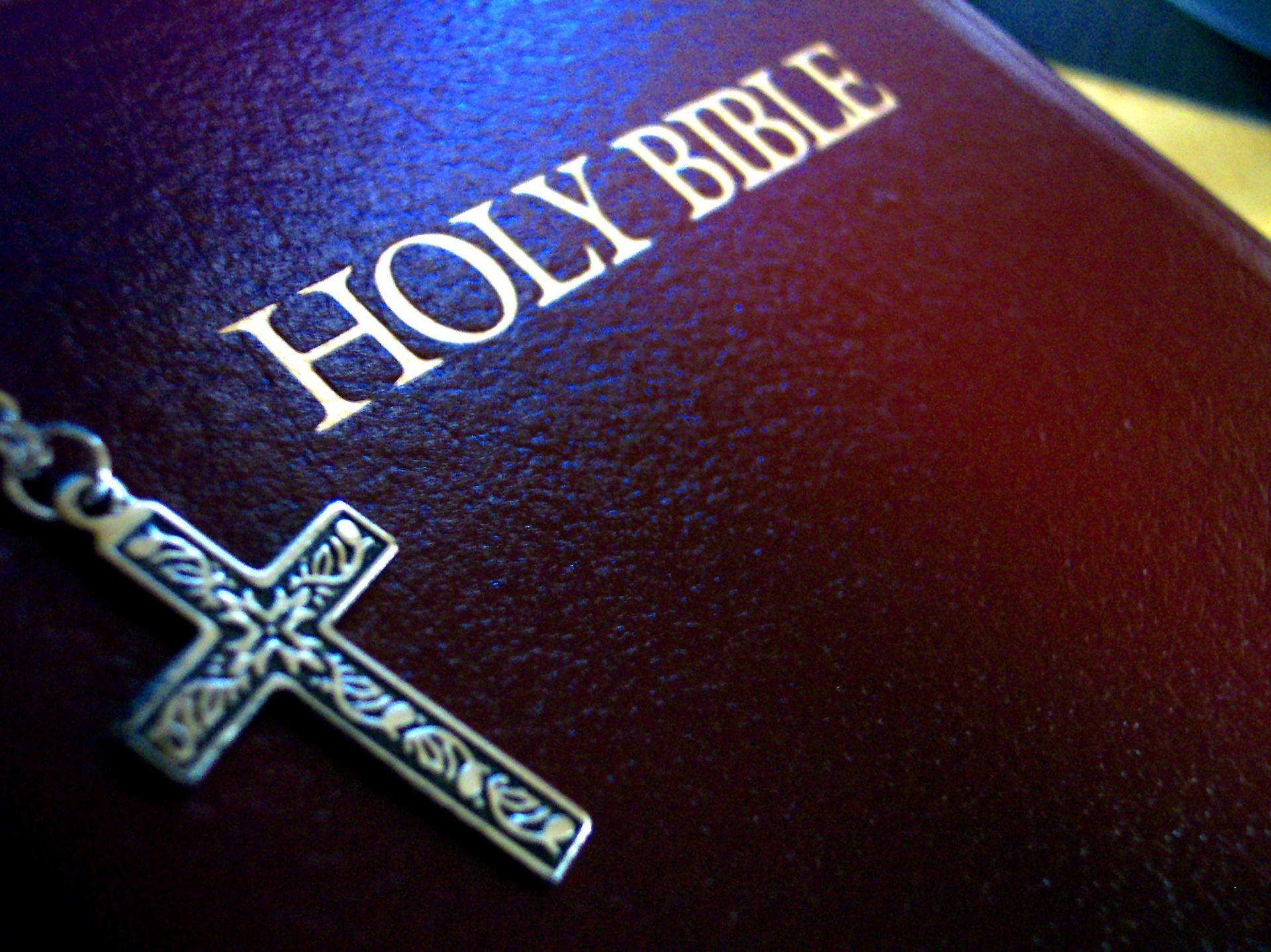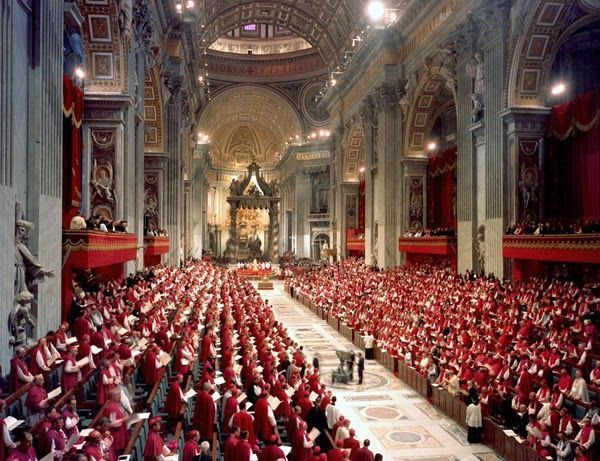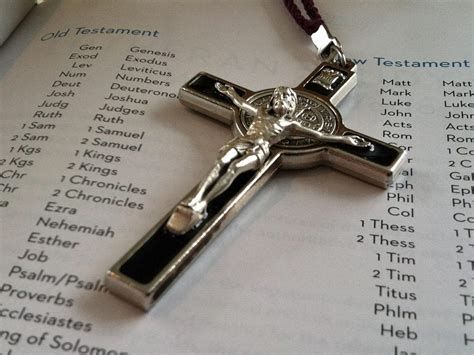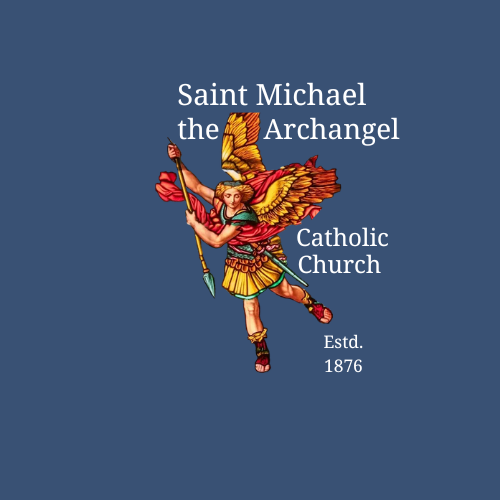Deposit of Faith
Brothers, stand firm and hold fast to the traditions that you were taught, either by an oral statement or by a letter of ours.
(2 Thessalonians 2: 15)
What is the Deposit of Faith?
God is the only source of Revelation. The Deposit of Faith is the truth of God's Revelation as expressed in Sacred Scripture, which is the inspired and written Word of God, and Sacred Tradition, which is the Word of God as taught and transmitted through the teaching authority of the Church.
There exists a close connection and communication between Sacred Tradition and Sacred Scripture. For both of them, flowing from the same divine wellspring, in a certain way merge into a unity and tend toward the same end. (Dei Verbum 9; cf. CCC 86, 97)
There are also many other things that Jesus did, but if these were to be described individually, I do not think the whole world would contain the books that would be written.
Brothers, stand firm and hold fast to the traditions that you were taught, either by an oral statement or by a letter of ours.
Sacred Scripture is the Word of God, written under the inspiration of the Holy Spirit, contained in the collection of sacred books that have God as their true author and are entrusted to the Church (cf. DS 3006).
Sacred Tradition from the Latin traditio, meaning "to hand on") is the Word of God as received from Christ himself through the Apostles and transmitted to us without aIteration—as it were, from hand to hand—by the Church with the assistance of the Holy Spirit (cf. DS 1501; DV 9). Sacred Tradition must not be confused with "traditions" of a pious, devotional, theological, or disciplinary nature. (Cf. CCC 76-78, 81-83,2033)
Both Sacred Scripture and Sacred Tradition are to be regarded with equal reverence and devotion. Sacred Tradition preceded the New Testament writings; the first Christians had no written Gospels and only the preaching of the Apostles, the oral tradition, to instruct them about Christ and his teachings. Through Tradition we know which books are inspired by the Holy Spirit, that is, the list, or canon, of the books that make up Holy Scripture. (Cf. CCC 83)
Testimonies of Tradition date back to the first centuries and have been preserved in either ancient liturgical or disciplinary texts and practices or the writings of early Christian authors. (Cf. CCC 120,175)
The Catechism of the Catholic Church, paragraph 80 addresses this question.
-The Didache Bible, page 154
"Behold, I am with you always,
until the end of the age."
Matthew 28:20
What is Apostolic Tradition?
Apostolic Tradition is the transmission of the message of Christ, brought about from the very beginnings of Christianity by means of preaching, bearing witness, institutions, worship, and inspired writings. The Apostles transmitted all they received from Christ and learned from the Holy Spirit to their successors, the bishops, and through them to all generations until the end of the world.
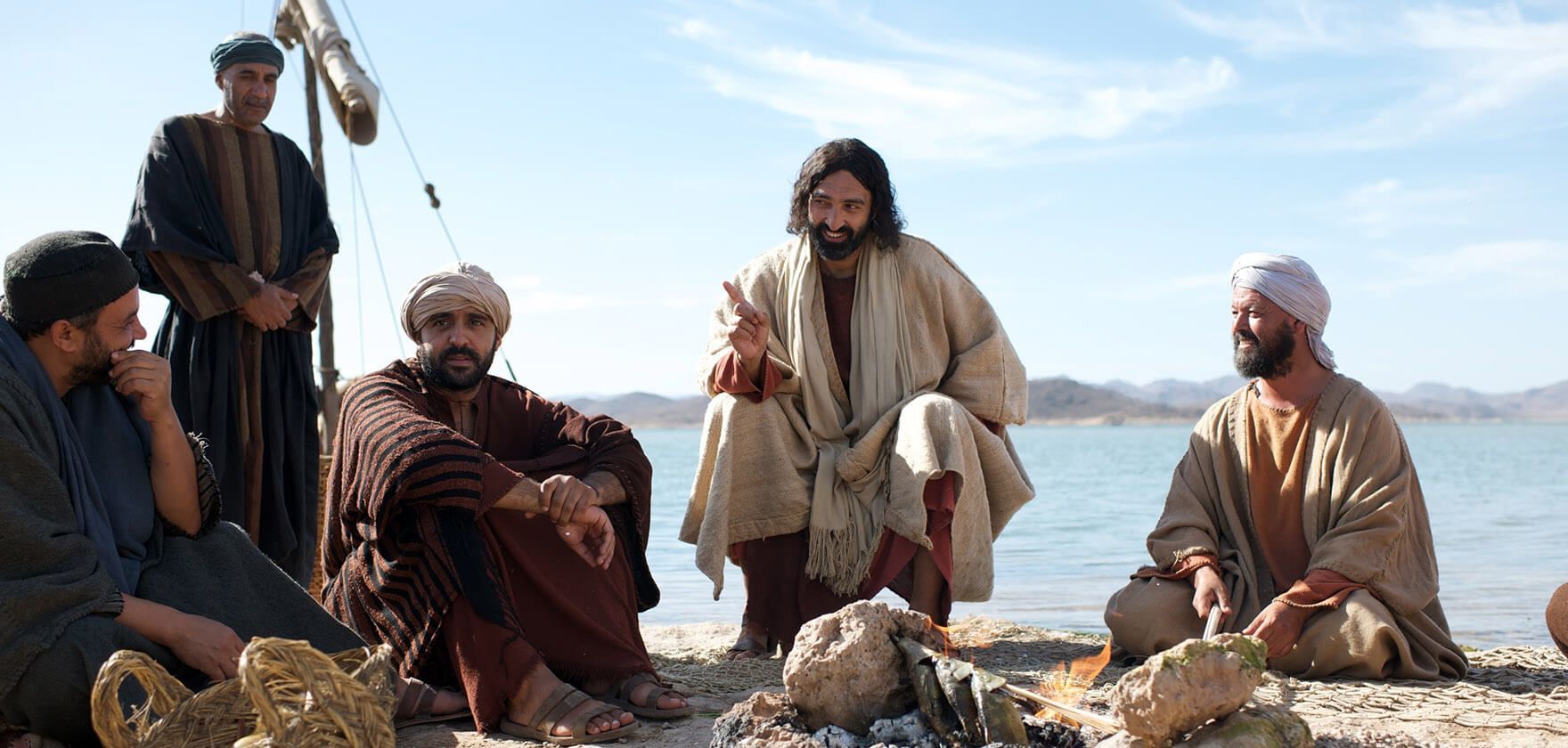
I praise you because you remember me in everything and hold fast to the traditions, just as I handed them on to you.
(1 Corinthians 11: 2)
The Apostles, eyewitnesses to the teachings and events of Christ's public ministry, were charged with faithfully preserving and handing on what they had received. "The Church, in her teaching, life and worship, perpetuates and hands on to all generations all that she herself is, all that she believes"(DV 8).
This Tradition was at first transmitted by word of mouth and only later in written form, as in the books of the New Testament. The written text was just one way that the Word of God lived in the Church (cf. 2 Thessolonians 2:15).
Sacred Tradition actually preceded and gave rise to the writing of the Gospels, the Acts of the Apostles, the Epistles, and the Book of Revelation. (Cf. CCC 81, & 120)
For Saint Paul, the Tradition that had been passed on by "word of mouth" was as authoritative as the Gospels and letters that had already been put in written form. The faith of the Church was not only a book but also a living faith that Christ had given to the Apostles. (Cf. CCC 77-79, 82)
The New Testament itself shows that the Apostles gave the faithful more than texts. They passed on rituals, like the rites to celebrate the Sacraments (cf. 1 Corinthians 11:23); they pronounced blessings (cf. Acts of the Apostles 6:6); they conveyed authority to others (cf. Acts of the Apostles 13:3); and they healed the sick (cf. Acts of the Apostles 28:8). The words of the holy fathers witness to the presence of this living tradition, whose wealth is poured into the practice and life of the believing and praying Church"(Dei Verbum 8). (Cf. CCC 84)
The Catechism of the Catholic Church, paragraph 78 and paragraph 97 addresses this question.
-The Didache Bible, page 1314
What is the relationship between Sacred Tradition and Sacred Scripture?
Sacred Tradition and Sacred Scripture are bound closely together and communicate one with the other. Each of them makes present and fruitful in the Church the mystery of Christ. They flow out of the same divine well-spring and together make up one sacred Deposit of Faith from which the Church derives her certainty about revelation.
-Compendium, 14. CCC
What was handed on by the Apostles includes everything which contributes toward the holiness of life and increase in faith of the people of God; and so be Church, in her teaching, life and worship, perpetuates and hands on to all generations all that she herself is, all that she believes"
(Dei Verbum 8).
To whom is the Deposit of Faith entrusted?
The Catholic Church
The Apostles entrusted the Deposit of Faith to the whole of the Church. Thanks to its supernatural sense of faith the people of God as a whole, assisted by the Holy Spirit and guided by the Magisterium of the Church, never ceases to welcome, to penetrate more deeply and to live more fully from the gift of divine Revelation. -compendium, CCC
To whom is given the task of authentically interpreting the Deposit of Faith?
The task of giving an authentic interpretation of the deposit of faith has been entrusted to the living teaching office of the Church alone, that is, to the successor of Peter, the Bishop of Rome, and to the bishops in communion with him. To this Magisterium, which in the service of the Word of God enjoys the certain charism of truth, belongs also the task of defining dogmas which are formulations of the truths contained in Divine Revelation. This authority of the Magisterium also extends to those truths necessarily connected with Revelation.
-Compendium, CCC
What is the relationship between Scripture, Tradition and the Magisterium?
Scripture, Tradition, and the Magisterium are so closely united with each other that one of them cannot stand without the others. Working together, each in its own way, under the action of the one Holy Spirit, they all contribute effectively to the salvation of souls.
For God so loved the world that he gave his only Son, so that everyone who believes in him might not perish but might have eternal life.
John 3:16
Faith is necessary for salvation.
God has revealed himself to us so that we might have faith in Jesus Christ and the One who sent him. It is through God’s grace that we have the gift of faith.
The Deposit of Faith contained in Sacred Scripture and Sacred Tradition nurtures our growth in faith and teaches us how to live as Christ’s disciples.
-from The Catholic Faith Handbook
Core Catholic Beliefs
Discover more of the core beliefs of Catholics and the Truth as revealed by God.




